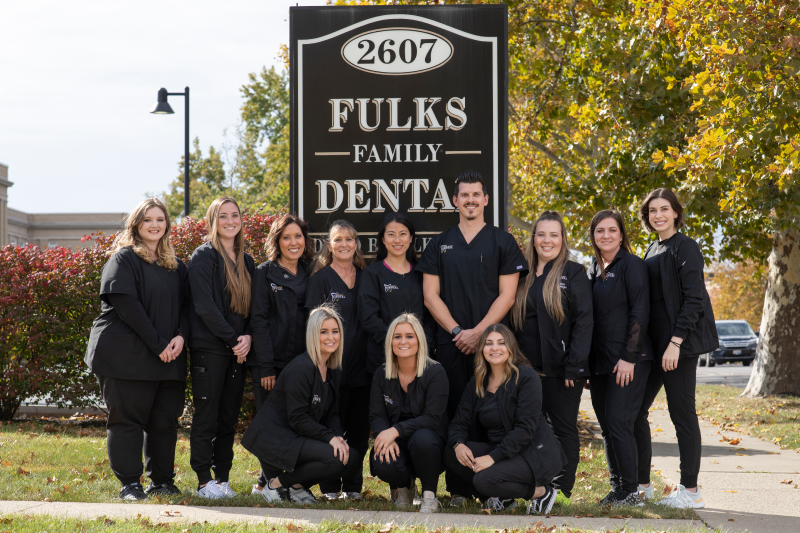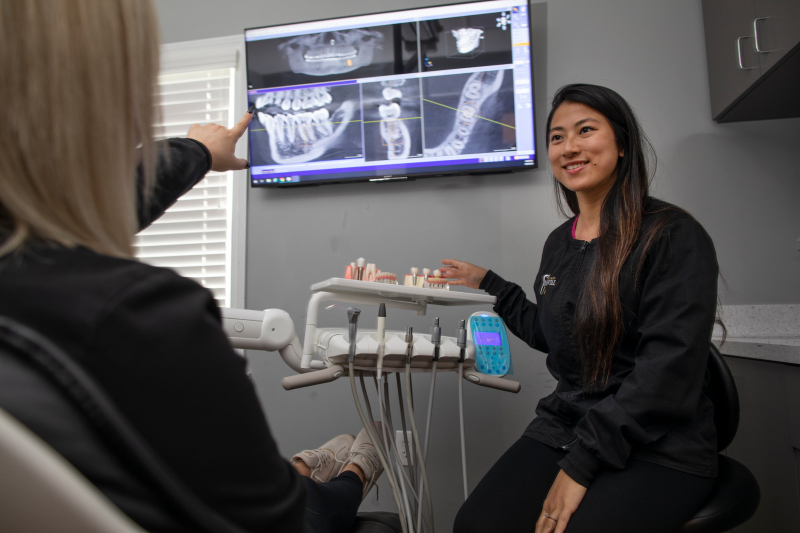Gum Grafting in Columbus

Gum Grafting
Why Do Your Gums Recede?
Gum recession occurs for several reasons, including from gingivitis, genetics or the natural aging process. If you can see the roots of your teeth when you are smiling, then your gums are beginning to recede. While you may have healthy teeth and gums, having your dental roots exposed can lead to problems such as sensitivity, tooth loss or contamination from food particles and beverage debris. You may have a problem with food collecting in the spaces around the tooth, leading to an infection. Gum Grafting is a solution to fixing your gum recession and ensuring you have healthy teeth and gums!
Why Would You Need a Gum Graft?
While you might keep the area around a tooth clean, if you have several teeth with gum recession, then it can lead to an unattractive smile, as well as a higher risk for infection. Fortunately, our dentists at Fulks Family Dental can perform a gum grafting procedure to improve the appearance of your smile along with protecting the dental roots. The most common way for a dentist to repair receded gums is by collecting small amounts of tissue from your mouth’s palate (the roof of your mouth) and attaching it with sutures onto the area of your mouth with receding gums. Or, in some cases, our dentist can adjust the gum’s current tissue without using a graft. Donor tissue can also be used when a patient requires multiple gum grafts or if there is extensive periodontal disease in the mouth as well. To find out which option will be best for you, we recommend scheduling a consultation with your dentist.
What Is Sedation Dentistry?
Normally we use local anesthesia for gum grafting, because our dentist must collect the tissue from the roof of your mouth before stitching it into place over the exposed dental root. You don’t need to be fully sedated, and can even drive yourself home after the appointment. However, patients can take advantage of sedation dentistry for a gum graft to ease any anxiety associated with getting the procedure. With sedation dentistry, you can relax and sleep while the dentist works on your gums and teeth. During this type of dental surgery, you won’t feel any pain, and after the procedure, our dentist will supply pain-relieving medications that you will take for several days to reduce discomfort.
How Long Does It Take To Recover?
It will take approximately two weeks to recover from gum surgery, and during this time, you are supposed to clean your mouth frequently with specialized mouth rinses to prevent an infection. As your mouth heals, you may need to use an oral irrigator to clean your teeth around the affected area. You will want to stick to a soft foods diet, and you will be provided with a list of foods that you can eat, as well as other after-care instructions. After your stitches heal, you can go back to eating regular foods and your normal brushing routine.


